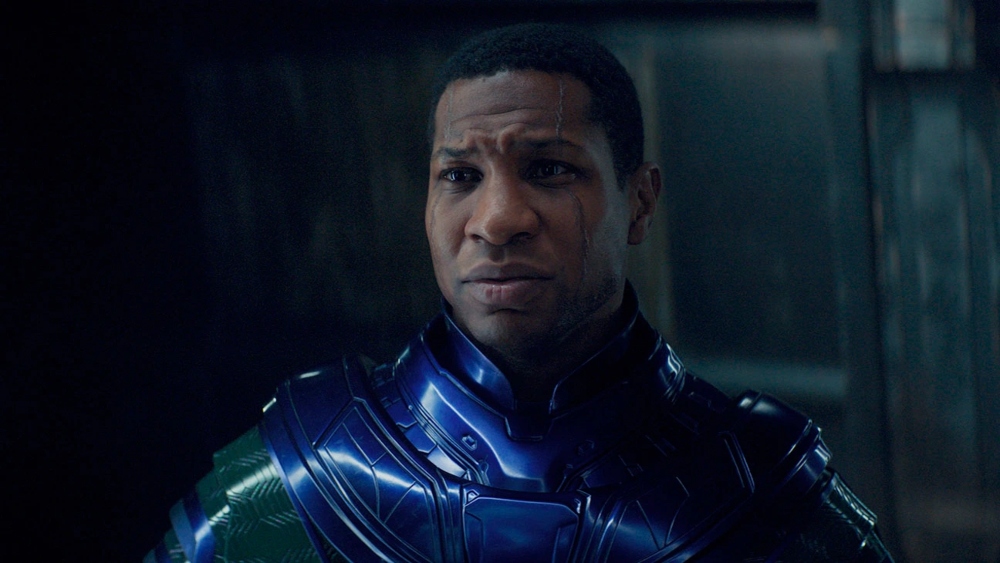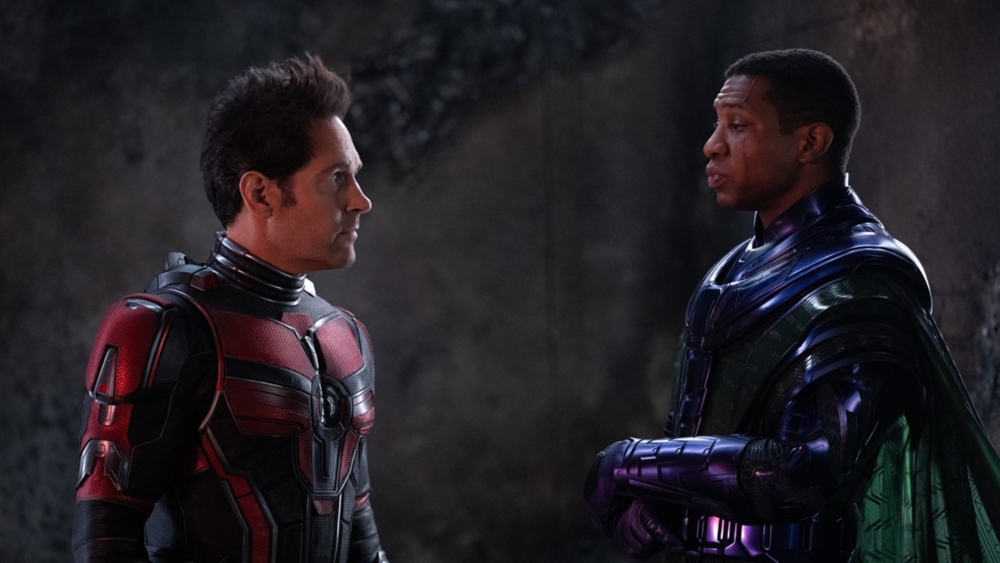The Marvel Cinematic Universe enters a new decade with Ant-Man and the Wasp: Quantumania. For those not keeping track at home, this film is the first in Marvel’s all-important Phase 5, the third in the Ant-Man franchise, and the 30th in the MCU.
You cannot fully fault the filmmakers for failing to find compelling narratives for 30+ movies that explore variations on the same themes, more or less, as audiences that demand nothing but superhero fare and the greedy studios that indulge them deserve to shoulder some of the blame as well for this ongoing and seemingly endless cycle. And while the critical reception toward Quantumania will remain as irrelevant as it has for all 29 prior MCU entries, the latest Ant-Man movie is arguably one of the worst misfires in the entire multi-billion dollar series, as its level of creativity is, like Paul Rudd‘s protagonist, pretty small.
Quantumania finds former Baskin Robbins employee and lovable thief Scott Lang (Rudd) merrily strolling along the streets of San Francisco, his life charmed by his past adventures as an Avenger, as his miscreant deeds have been washed away after helping to save the world. Scott’s biggest headache is his daughter, Cassie (Kathryn Newton), who at 18 retains the youthful idealism that Lang has lost, even if his humanitarian worker wife, Hope van Dyne (Evangeline Lilly), aka the Wasp, has not.
The Langs are a happy family, rounded out by Hope’s parents — scientist Hank Pym (Michael Douglas), the original Ant-Man, and Janet van Dyne (Michelle Pfeiffer), the original Wasp, who was previously lost in the Quantum Realm for 30 years after being accidentally sent there by her husband’s size-altering inventions. After a brief sojourn, the quintet finds itself unwittingly trapped in said realm for no particular reason other than to sell movie tickets.
The award-winning cast also includes Bill Murray as a comedic villain living large in the Quantum Realm, and Jonathan Majors (Devotion) as the principal antagonist, the evil Kang the Conqueror, who Marvel has been eager to bill as the Thanos of this phase of the infinite Marvel universes of madness. One may fairly wonder how such a star-studded group of actors can produce anything other than an excellent picture. Well, that’s easy — none of them are acting. Instead, Ant-Man and the Wasp: Quantumania is a series of shots of these undoubtedly talented individuals staring into the void, or at green screens. Nearly all of the film was generated via computers — maybe not by A.I. like Chat GPT, but by effects that require keystrokes more than anything else.

Upon their entry into the Quantum Realm, the Langs are quickly separated and embark on a quest to find each other. They learn the nature of Kang the Conqueror’s relationship with Janet, who left him stranded after seeing a vision of his world-destroying intentions. Stranded for decades in the Quantum Realm, Kang has built his prison into an empire, unleashing a campaign of terror and oppression against this world of magical and bizarre creatures, and the Langs find themselves caught between the warring factions while struggling to find a way home themselves.
From the outset, Quantamania‘s plot is frustratingly uninteresting, unless you are a devoted, diehard Marvel fan. One suspects there are hidden references to Marvel catnip shrunk into the nooks and crannies of the admittedly visually dazzling world that the film’s Visual Effects team created. But it is too exhausting to follow all the fictionalized exposition to expend more energy trying to follow how everything and everyone connects to each other. Director Peyton Reed (who also helmed the first two Ant-Man films) had, like other MCU directors, done a decent job of making these films intelligible to most audiences, as this trilogy stands largely on its own, for the most part. However, as the Ant-Man franchise has continued, that mission has become increasingly difficult, and Screenwriter Jeff Loveness (Rick and Morty) certainly had his work cut out for him here.
Worse still, as this universe (or, rather, the multiverses) expands endlessly and anything from time travel to full-stop resurrection is possible, it becomes increasingly harder to care about what’s happening, both in this film and in the MCU at large. As the unimaginable becomes possible in Quantumania, it is hard to understand why the characters would express any emotion about the things happening around them. When Rudd’s amiable Lang seems to really care about what happens to his daughter or acts surprised at a new creature he encounters, it becomes impossible not to wonder, “Isn’t this the same guy who moments ago was talking about how endless and improbable the universe and thus, his life had become?” What, exactly, is the source of his surprise? And, if he can’t be surprised, why would the audience?

So even though Composer Christophe Beck provides a wholly original drum-focused score, one unlike any of the prior 29 MCU soundtracks, and even though Cinematographer William Pope‘s efforts shine through the visual effects, and even though Editors Adam Gerstel and Laura Jennings aptly manage the film’s many moving pieces, none of this matters, because it is virtually impossible to distinguish Quantumania from the many Marvel movies that precede it.
In one critical scene, Ant-Man replicates himself repeatedly, as he gets stuck in a “probability storm.” Each copy of Scott is wearing the character’s signature suit, except for an amusing version of Scott who’s still dressed as a Baskin Robbins worker. One desperately hopes that this version of Scott would’ve appeared throughout the movie, but that’s not the case, and we’re stuck with carbon copies of the same old concept instead.
By the end of Quantumania‘s two-hour runtime, it won’t matter much whether the filmmakers purposefully decided to directly lift ideas, designs, effects, action sequences, and lines of dialogue from movies as far ranging as Star Wars, War of the Worlds, and Titanic, or whether they simply neglected to notice that they were copying not only prior Marvel movies but other, more successful ones. Both incredibly derivative and almost entirely devoid of an emotional core, Ant-Man and the Wasp: Quantumania is one of the worst films in the history of the MCU, with no real purpose other than as a showcase for Kang. For a movie about Marvel’s smallest hero, that’s a big problem, indeed.
Grade: D+
Ant-Man and the Wasp: Quantumania will be released in U.S. theaters on Feb. 17 courtesy of Disney.





